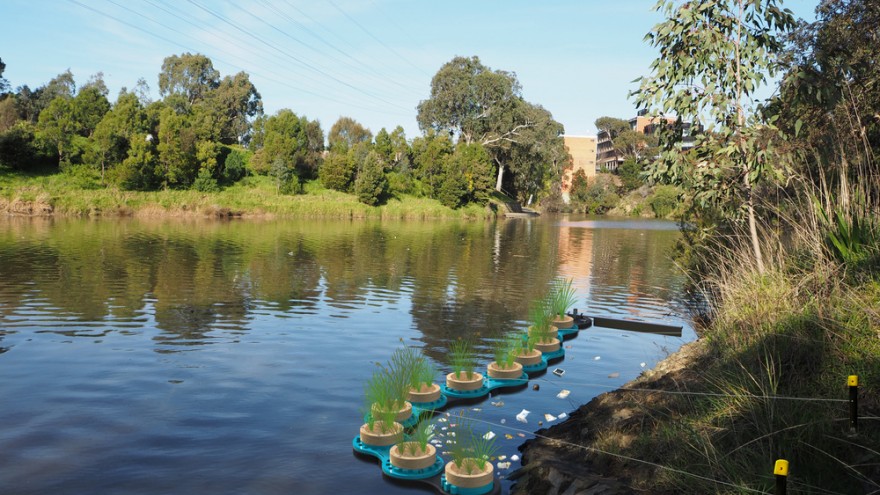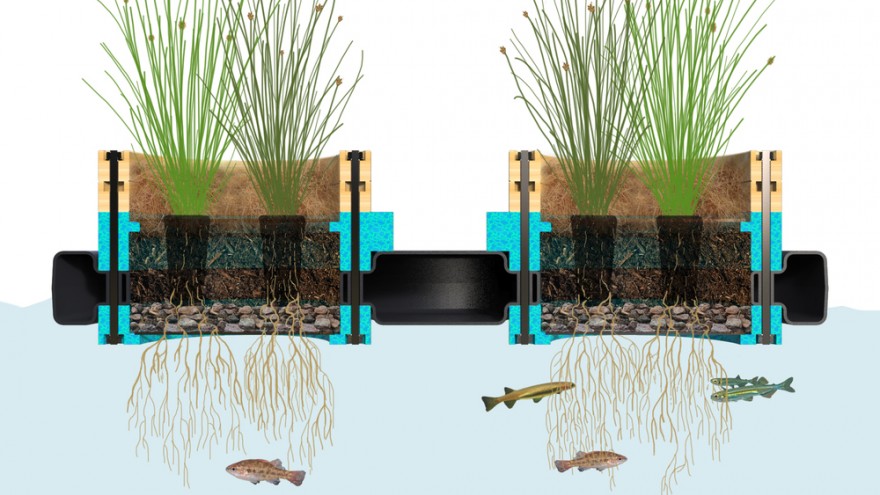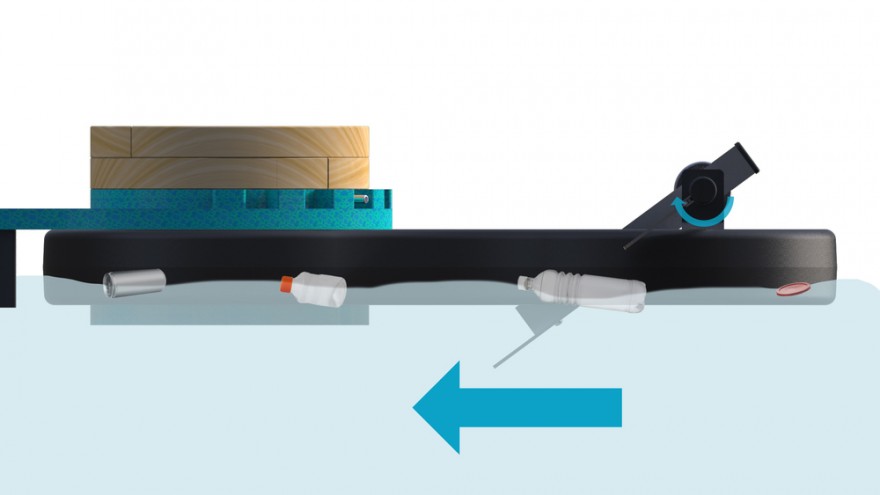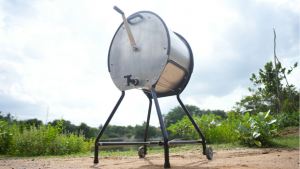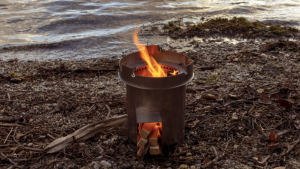Project Galada is a floating plant system that filters out trash. Melbourne-based designer Rowan Turnham designed and built the system to remove the litter gradually accumulating in Melbourne’s Yarra River. The planters not only collect rubbish but they also provide an ecosystem in which fish and other aquatic organisms can thrive.
The interlocking mechanism of a bicycle chain inspired Turnham’s modular design, which consists of individual planter pods linked together in a chain-like sequence. This mechanism is useful because it allows the modular pods to be stacked together in a barrier formation that acts as the litter catchment area.
The planter pots contain endemic aquatic plants that form a floating bio-filtration system in the river. The roots of the aquatic sedge and rush plants grow under the water and create a healthy root network, which benefits the river’s ecosystem and provides a habitat for fish that nibble on the nutrient-rich shoots.
According to Turnham, the roots have the ability to keep “river temperatures low, increase oxygen levels, reduce the risk of algal blooms and soak up excess nutrients like phosphorus and nitrogen, which are then converted to growth”.
Turnham designed the filtration system to work with the natural flow of the Yarra River, which has downstream and upstream tidal currents. The litter gate, which is positioned at the one end of the planter network, draws in the litter when opened by the downstream flow. The upstream flow pushes the gate closed so that the litter is trapped inside.

